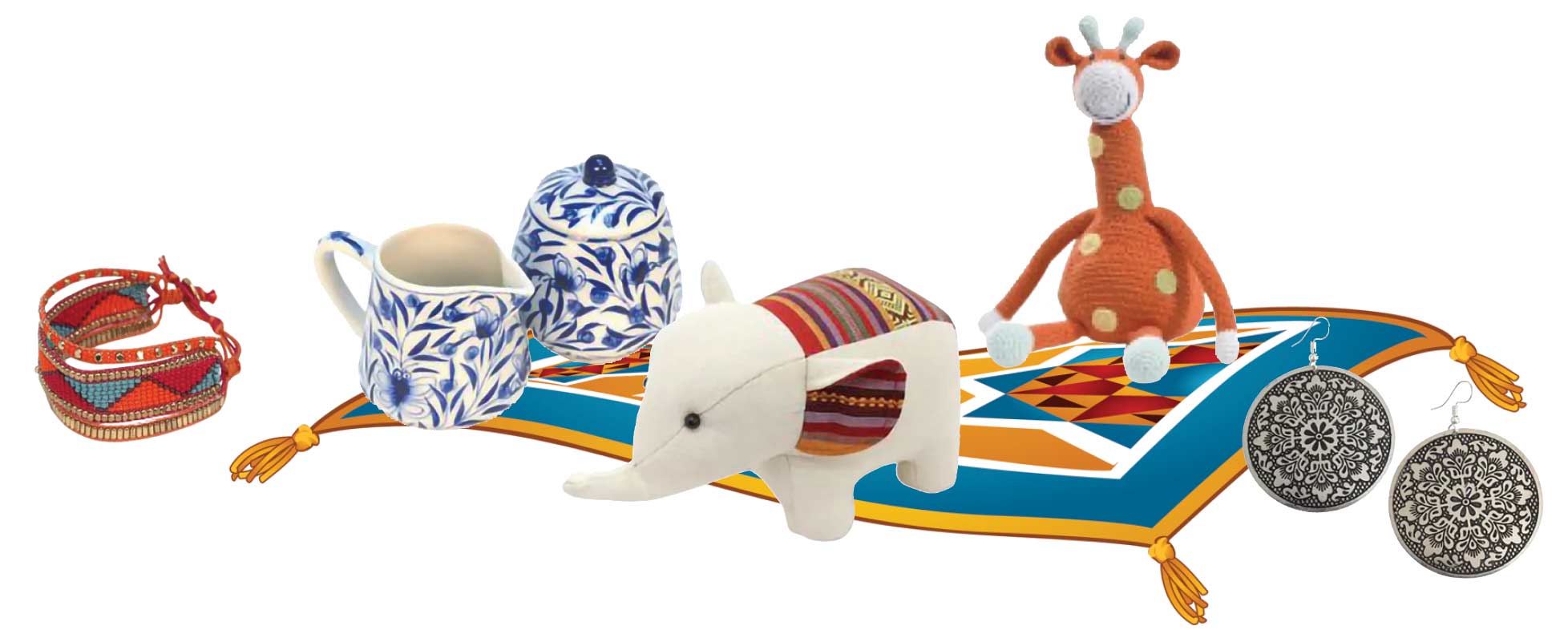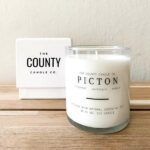
A connected community has enabled a local fair trade organization to reach its 15-year milestone so it can continue to support artisans around the world.
With its protected nook on Lake Ontario, Cobourg could be perceived as a provincial community, off the beaten path; but the town’s heritage is one of connectivity right around the world. It is this global-focused thinking that spurred three friends to act locally. In 2009 they opened Ten Thousand Villages, with the goal of importing and selling fair trade, sustainable goods created by artisans in developing countries from all parts of the globe. Fifteen years later the store is celebrating its own sustainability.
Manager Derrick Cunningham says he was impressed by a visit in 2007 to a Ten Thousand Villages store in Toronto. A conversation at a party with his friends, Barb and Roger Henderson, around fair trade coffee led to the creation of the Northumberland Fair is Fair Trade Group, established to operate and open Cobourg’s own Ten Thousand Villages retail store.
“The reception of the community to the store from day one was evidence that people understood that local actions could have broader impacts in the world, and that even small things like making ethical choices when consuming can help build capacity far away,” says Cunningham.
“In Cobourg there has always been a breadth of vision, real inclusion if you like, when it comes to understanding who our neighbour is,” says Fair is Fair Trading chair, Bridget Campion. “I think of St. Andrew’s Church raising funds for children orphaned by AIDS in sub-Saharan Africa. Or the local doctors and dentists who travel to underserved areas of the world to provide medical and dental care to children in need. Or the partnership that Cobourg has forged through Horizons of Friendship to fight poverty in Central America and Mexico. Or the way the community rallied to provide the funds needed so that a Ten Thousand Villages store could be opened in Cobourg.”
Community support has carried the store through many upheavals, not just in the retail world as it grapples with supply issues and online competition, but through the pandemic and the internal struggles inside the Ten Thousand Villages organization itself (Villages Canada), which have left Cobourg as home to the only store in Eastern Canada. The store was the 51st in the country to open in 2009. There are only six left; only three still bear the Ten Thousand Villages name.
To celebrate the past 15 years and as a nod to their future, 10,000 trees are being planted in association with Tree Canada and the Ganaraska Region Conservation Authority. For ten dollars, customers can stop by the store and purchase the equivalent of four seedlings. This campaign runs through to Earth Day, April 22, 2024.
In addition, a scholarship in memory of the late founder, Roger Henderson, will be made available to a Northumberland County high school student who has a demonstrated interest in fair trade or social justice.
While sourcing fair trade products globally has been at the core of Ten Thousand Villages Cobourg, Fair is Fair is also working closer to home with Indigenous producers.
“The pilot project we did with Niska Artisans was an exciting change for us,” says Derrick Cunningham. “Traditionally, our stores have focused on the developing world. People would often ask if we had any products from Canada, and we simply explained that wasn’t our focus. But when we were approached by Niska Artisans, a group of artists from Cree and Anishinaabe communities in Northern Ontario and hosted by the Mennonite Central Committee’s Indigenous Neighbours program, it felt like an opportunity to test that market for them and for us. The pilot went well, and we hope to do more in the future.”
Although these products will stand apart from the dozens of suppliers in Africa, Asia, Latin America and South America, all products and suppliers align with the Fair Trade principles, which cover social, economic and environmental development. Fair trade products are not required to be organic, but organic products are purchased at a further premium. In Canada, certification of fair trade products is done by Fair Trade Canada. In short, Fair Trade is there to ensure makers are treated fairly and are able to support their own communities through their labour and artistry.
“Global craft products are often unique creations, made further unique by their cultural association,” says Cunningham. “They are products that need to be touched to make a connection to them. Add to that the handcrafted quality of each item and the story of those hands that did the crafting, and you have a compelling product that can do a bit of good in the world. Fair trade, often referred to as ‘direct fair trade,’ allows us to have direct knowledge of the people who benefit from the fair wage and social premiums that help to better their lives, families, and communities.”
“The thing that makes our store and what it sells different from most other retail is the connection between the product and the people who make it,” says Cunningham.
The same could be said for Cobourg – it’s the people who make it.
Story by:
Will McGuirk




